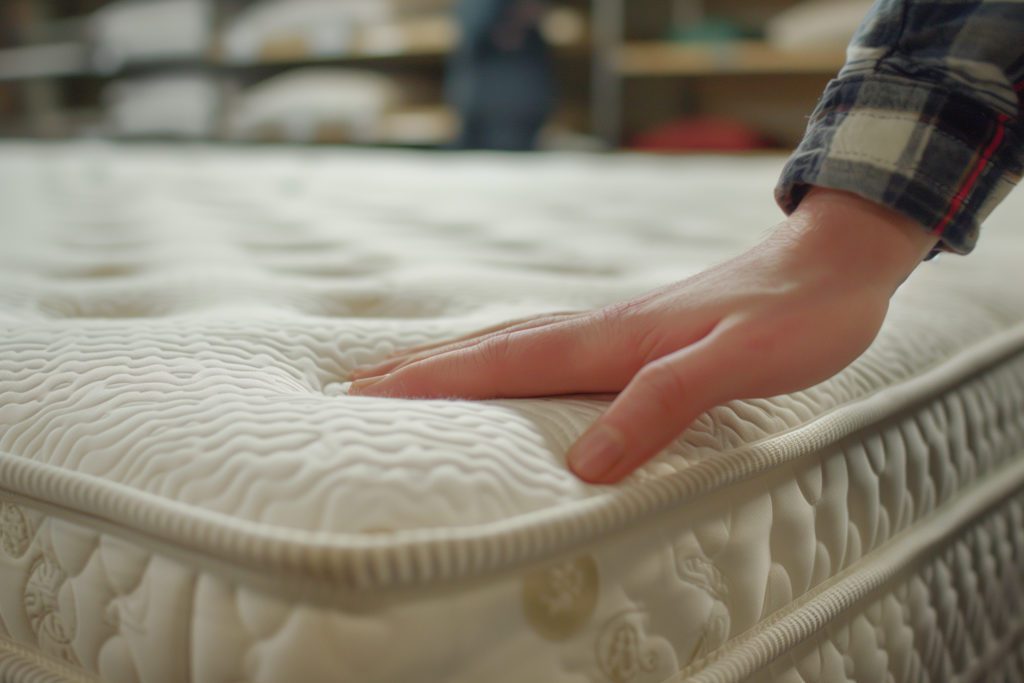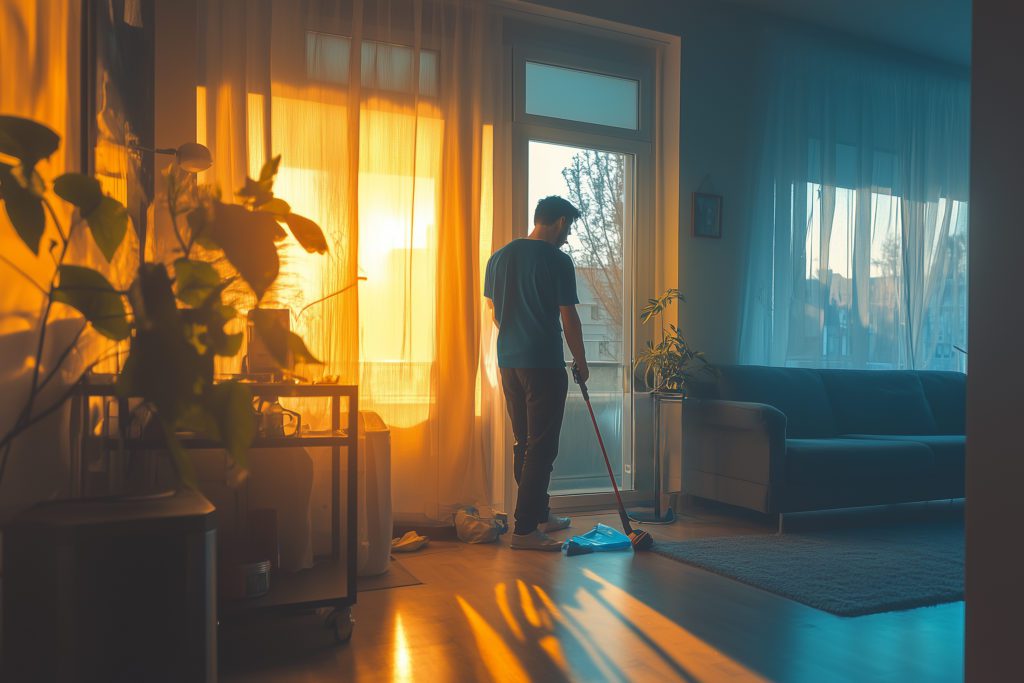
Can You Learn to Be a Heavy Sleeper? Here’s How
Want to sleep through thunderstorms? Learn how to train yourself to be a heavy sleeper with tips on improving sleep hygiene, environment, and habits for deeper rest!

If you're like most people, waking up to every creak in the house, you might wonder, Can you learn to be a heavy sleeper? The short answer is yes; with a bit of work and some habit changes, you can train your body to engage in a deeper sleep. In this article, we'll discuss how to go from a light dozer to a deep sleeper. Read ahead to learn some incredible strategies.
The Basics of Sleep Cycle
To understand how to become a heavy sleeper, we first need to talk about sleep cycles. Sleep doesn't happen all at once—it's a dynamic process that cycles through different stages, including light sleep, deep sleep, and REM (Rapid Eye Movement) sleep.
Deep sleep, also known as slow-wave sleep, is crucial for the body's physical recovery, memory consolidation, and immune function. Heavy sleepers tend to spend more time in this deep sleep stage. REM sleep, on the other hand, is where vivid dreaming occurs, and your brain is more active, making it easier to wake up during this phase.
Factors That Influence Heavy Sleeping
So, what determines if you'll sleep like a log or be up at dawn from a pin dropping? Research shows that deep sleep is influenced by factors like age, sleep environment, and even genetics.
Genetics
If your parents were heavy sleepers, you might have had the genetic makeup that favors deep sleep. A 2013 study in the Sleep Medicine Clinics found that some people are genetically predisposed to being heavy sleepers, as their brains produce more slow-wave activity during sleep.
Environmental Factors
Your sleep environment can make or break your chances of becoming a heavy sleeper. A dark, quiet, and cool bedroom is the perfect recipe for deep sleep. Light, noise, and temperature can all affect how well you sleep. For example, research shows that reducing noise pollution—like using earplugs or white noise machines—can significantly increase deep sleep time.
Lifestyle Choices
Lifestyle choices also have a significant impact. Regular exercise, avoiding late-night caffeine, and maintaining a consistent sleep schedule can all help. Sleep experts recommend sticking to the same bedtime and wake-up time, even on weekends.
Can You Train Yourself to Be a Heavy Sleeper?
Absolutely! While some people may naturally drift into deep sleep more easily, good habits and routines can make a huge difference. It's all about teaching your body how to sleep better, and one of the best ways to do that is by practicing excellent sleep hygiene.
Consistency
Going to bed and waking up at the same time every day might sound boring, but it's a game-changer for sleep. A study found that irregular sleep patterns can disrupt your circadian rhythm, making it harder to fall into deep sleep. Try to stick to a consistent schedule, even on weekends.
Pre-bedtime routines
Think of them as a signal to your brain that it's time to wind down. Reading a book, practicing mindfulness, or even indulging in some light stretching can help shift your body into sleep mode. Just avoid anything too stimulating—scrolling through social media before bed is a no-go. Blue light from screens can trick your brain into thinking it's daytime, which makes it harder to fall asleep.
Cognitive Behavioral Therapy for Insomnia (CBT-I)
There's also Cognitive Behavioral Therapy for Insomnia (CBT-I), which has been shown to be highly effective in improving sleep quality. CBT-I helps people change negative thoughts and behaviors that interfere with sleep, gradually teaching the body to sleep better. According to a study in The Journal of General Internal Medicine, CBT-I has a success rate of 70-80% for improving sleep quality, making it a powerful tool for those looking to become heavier sleepers.
Practical Tips for Becoming a Heavy Sleeper
If you're ready to upgrade your sleep game, here are some practical tips to help you train yourself to be a heavy sleeper:
Optimize Your Sleep Environment
Dark and Quiet Bedroom: Light and noise are two of the biggest sleep disruptors. Blackout curtains and earplugs can work wonders for improving sleep quality. If you live in a noisy area, white noise machines can mask disturbing sounds, helping you stay in deep sleep longer.
Comfortable Bed and Bedding: A lumpy mattress is no one's friend. Investing in a good-quality mattress and pillows that suit your sleep style can significantly improve how deeply you sleep.
Cool Room Temperature: The ideal temperature for sleep is around 59-68°F (15-20°C). Your body temperature naturally drops during deep sleep, so a cooler room helps your body achieve that.
Sleep Aids
White Noise Machines: Consistent background noise can improve sleep quality by masking sudden sounds that would otherwise wake you up.
Weighted Blankets: They provide gentle pressure that helps you relax and can improve the depth of your sleep.
Diet and Exercise
Healthy Eating Habits: Caffeine, large meals, and alcohol before bed can be major sleep disruptors. It's best to avoid them for at least a few hours before hitting the bed.
Regular Exercise: Regular physical activity is one of the best ways to improve sleep quality. A 2023 study found that exercise promotes deeper sleep, but just be sure to avoid vigorous exercise close to bedtime—it can have the opposite effect.
For those struggling despite trying various methods, Pillow can help by tracking sleep cycles and providing insights on how to become a heavy sleeper.
The Bottom Line
Can you learn to be a heavy sleeper? Absolutely! While some people are naturally heavy sleepers, most of us can take steps to deepen our sleep. By creating a consistent sleep schedule, improving your sleep environment, and practicing good habits, you can train yourself to sleep more soundly over time.

Written by
Dr Aqsa
As a Medical Doctor, Dr Aqsa, uses her knowledge to craft complex medical information that is understandable to the general public. For years, she has tried to improve health literacy and empower readers with valuable health knowledge through her articles, blog posts, and educational materials.
Download Pillow
Get help
Press & News
Legal
Connect
X (Twitter)
Company
Copyright © Neybox Digital Ltd.



